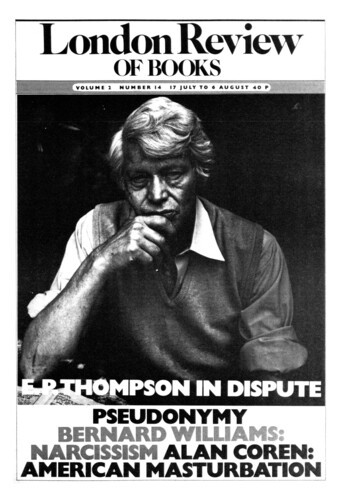Children’s Fiction and the Past
Nicholas Tucker, 17 July 1980
Some sense of history, however vague or inaccurate, has always been an important factor in helping young people define their hopes and fantasies about their eventual place in the world. The story of Dick Whittington, fabled Lord Mayor of London, has for centuries helped underpin a belief that extreme social mobility always remains a strong possibility for everyone, however illusory the idea may often be in practice. Later, 19th-century adventure novels set in the past, such as Kingsley’s Westward Ho! or Hereward the Wake, helped to foster the imperial ideal by suggesting that it was natural for Britains to seek an outlet overseas for all the manly endeavour that would otherwise be unbearably cooped up in one little island. The effect of such novels lasted well into our own century: Graham Greene has written that the stories of Rider Haggard were responsible for his lifelong interest in Africa. But for most children today, James Stephen’s prophecy of a time when ‘The Rudyards cease from kipling, and the Haggards ride no more’ has now come true. If these older historical novels are no longer read, is a new generation of writers getting over an equally vivid sense of the past?

